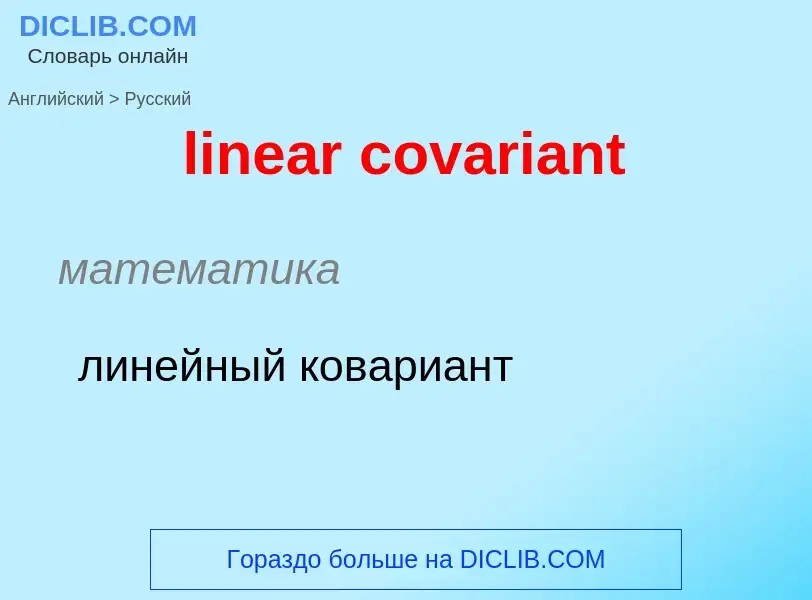Traducción y análisis de palabras por inteligencia artificial ChatGPT
En esta página puede obtener un análisis detallado de una palabra o frase, producido utilizando la mejor tecnología de inteligencia artificial hasta la fecha:
- cómo se usa la palabra
- frecuencia de uso
- se utiliza con más frecuencia en el habla oral o escrita
- opciones de traducción
- ejemplos de uso (varias frases con traducción)
- etimología
linear covariant - traducción al ruso
математика
линейный ковариант
['liniətrænsfə'meiʃ(ə)n]
общая лексика
линейное преобразование
математика
линейное отображение
Definición
Wikipedia
In object-oriented programming, a covariant return type of a method is one that can be replaced by a "narrower" type when the method is overridden in a subclass. A notable language in which this is a fairly common paradigm is C++.
C# supports return type covariance as of version 9.0. Covariant return types have been (partially) allowed in the Java language since the release of JDK5.0, so the following example wouldn't compile on a previous release:
More specifically, covariant (wide to narrower) or contravariant (narrow to wider) return type refers to a situation where the return type of the overriding method is changed to a type related to (but different from) the return type of the original overridden method. The relationship between the two covariant return types is usually one which allows substitution of the one type with the other, following the Liskov substitution principle. This usually implies that the return types of the overriding methods will be subtypes of the return type of the overridden method. The above example specifically illustrates such a case. If substitution is not allowed, the return type is invariant and causes a compile error.
Another example of covariance with the help of built in Object and String class of Java:




